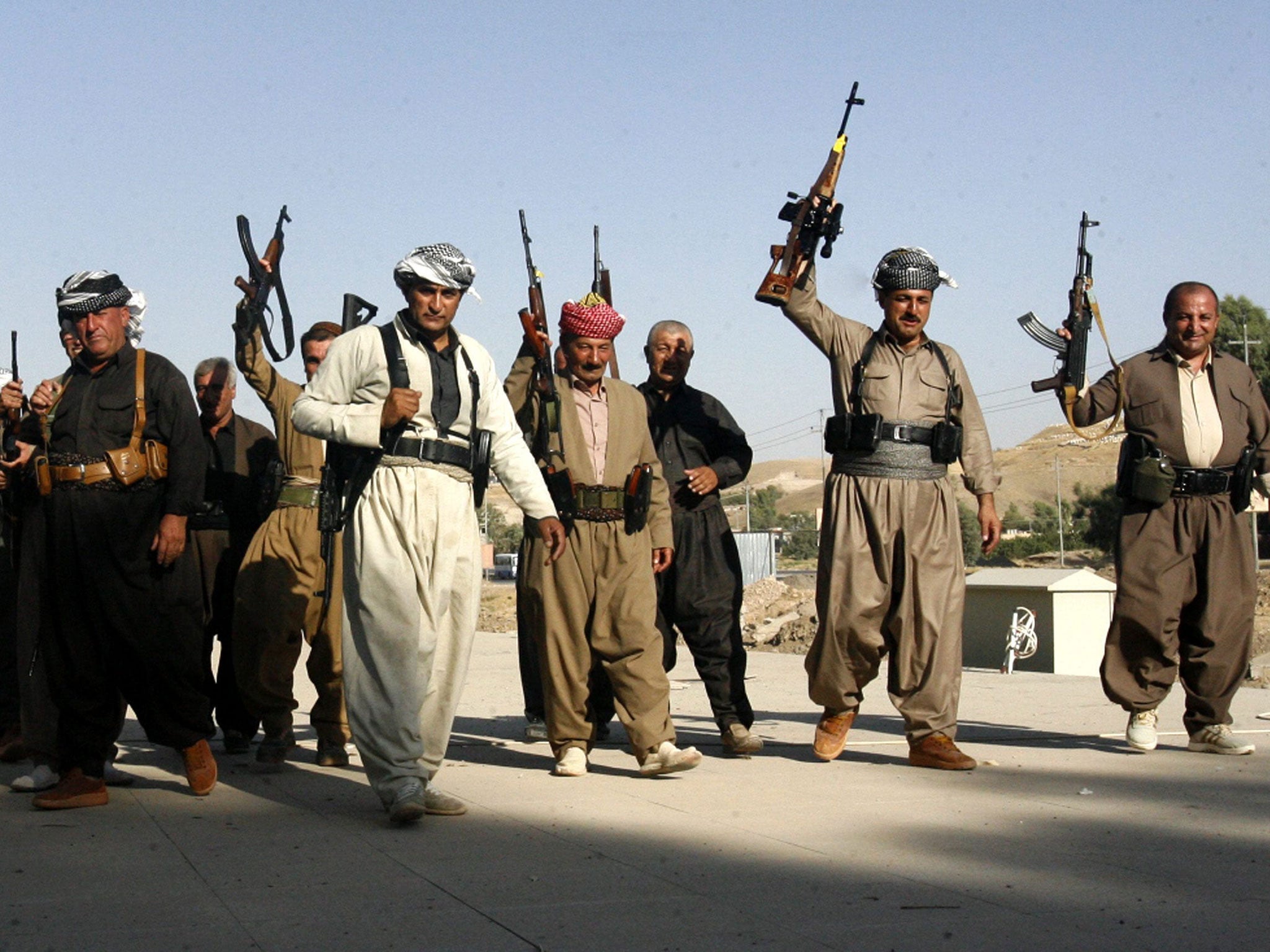Now the West is arming the Kurdish army. When will it admit the people's right to a state?
America is relying heavily on the support of the Peshmerga to beat back Isis

In the Kurdish city of Sulaymaniyeh, there is a building known as “Red Security”. Once it was the headquarters of Saddam Hussein’s intelligence services. Now it is a museum. Prison cells have been left as they were found: dimly lit with a few dirty rags on the tiled floors.
The most haunting section holds the interrogation rooms - now filled with life-sized sculptures of Kurds undergoing torture; one man is seen dangling by his handcuffs from a hook, another having the soles of his feet whipped by guards. A large room at the end of a corridor is known as “the children’s cell”. This was where some of Kurdish victims of Saddam’s regime were held until 1991 when the fate of the Kurds began to change.
In February of that year, in the middle of the first Gulf War, George Bush Senior called upon the Iraqi military and people to topple Saddam. The Kurds of northern Iraq responded to Bush and rose up to storm the strongholds of Saddam’s Ba’ath Party- including the Red Security headquarters. Saddam’s forces retreated. Erbil and Kirkuk both fell in to Kurdish hands.
The Gulf War ended later that month. Washington was keen to bring its troops home as quickly as they’d been dispatched. With America’s mission accomplished in Kuwait, its interests were no longer aligned with those of the Kurdish rebels. Their plight was just another internal Iraqi affair.
When Saddam began his reprisals – after the Americans had departed - the Kurds were left at the mercy a dictator who just three years earlier had used poison gas to massacre tens of thousands of civilians. The Kurds fled to the mountains in their thousands, seeking refuge in neighbouring Iran and Turkey - but many did not survive the journey.
One wing of the “Red Security” building contains an exhibition of photographs from the humanitarian crisis that ensued. The pictures show Kurdish families fighting for their lives on top of a mountain. The similarity with the images we are currently seeing from Mount Sinjar is uncanny. Then, as now, America eventually intervened. International media coverage of the crisis forced Bush’s hand, and a no-fly-zone over the region was set up. Bush had provided some protection for the Kurds of northern Iraq and inadvertently gave hope to their dream of an independent Kurdistan.
Today America is once again showing support for the Kurds in a time of crisis by striking at the jihadists of Isis, now rebranded the Islamic State. Obama has belatedly agreed to supply weapons to the Peshmerga, the Kurdish armed forces. That’s not to say that the US administration had much of a choice. The jihadists were using American weapons captured from the Iraqi army and marching upon the only legitimate and functioning military in the region. But why did Obama not act sooner? The excuse wheeled out was that they did not want to alienate the government of Nouri al-Maliki by arming the Peshmerga. They would not be seen to encourage the break-up of Iraq.
The old Kurdish adage “We have no friends but the mountains” rings true - if fair-weather friends like the Americans are removed from the equation. The US government - and now possibly the UK - has chosen to arm the Peshmerga on this occasion, but only at the last minute and as a last resort. They did not act when arms were first asked for, as the Peshmerga sought to protect their defenceless people outside the borders of the Kurdish Regional Government.
The crux is that the western powers still do not support the Kurds right to self-determination. With Kurdish independence closer than it has ever been, America’s interests - once again - diverge from those of the Kurds. What would the future of Iraq look like if the moderate oil-rich Kurdish region withdrew? As a third force between the two Arab components of the population – the majority Shia and the minority Sunnis - the Kurds have helped to keep the country together.
Without the Kurds, and with security in the hands of the failed Iraqi army, many believe the country would be ungovernable. And how could America look back on a decade of involvement in Iraq with a shred of pride?
The collapse of the Iraqi army in the face of Isis has ushered in a new era and there is no going back. The hope for the Kurds is that America will come to rely on them so heavily in the fight against Isis that support for their independence will be unavoidable. After decades of betrayal, and with a national consciousness forged in the torture chambers of that Red Security building, the Kurds have an undeniable right to their own state.
Join our commenting forum
Join thought-provoking conversations, follow other Independent readers and see their replies
Comments
Bookmark popover
Removed from bookmarks